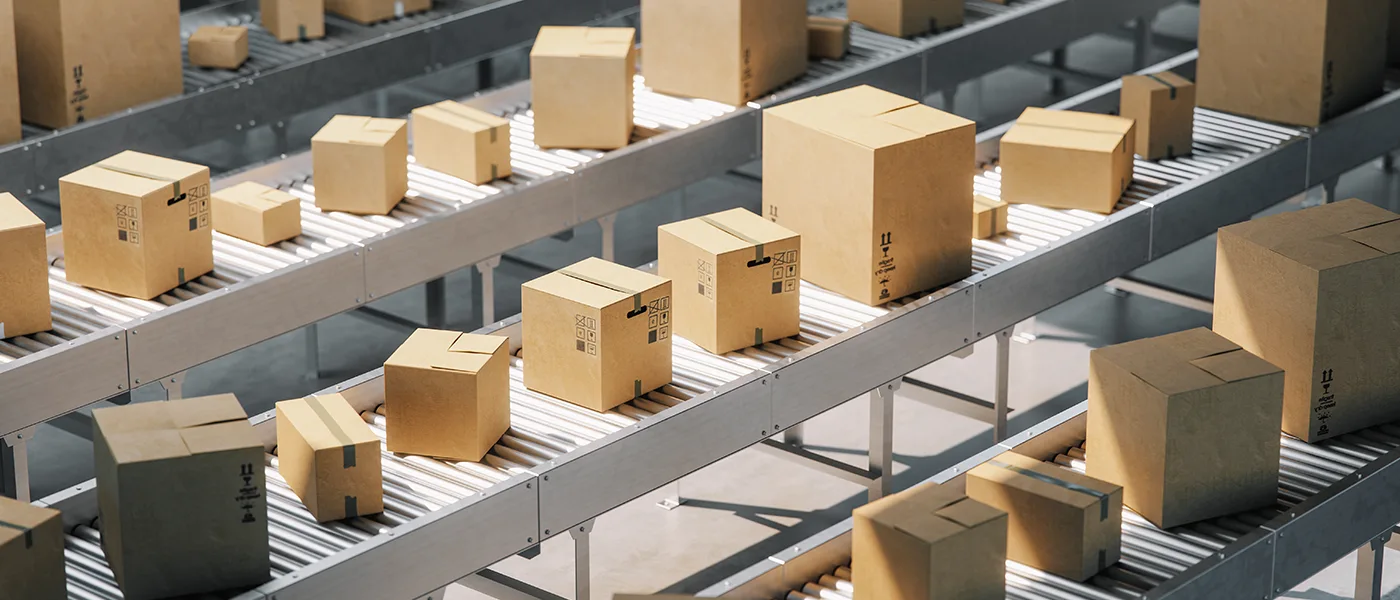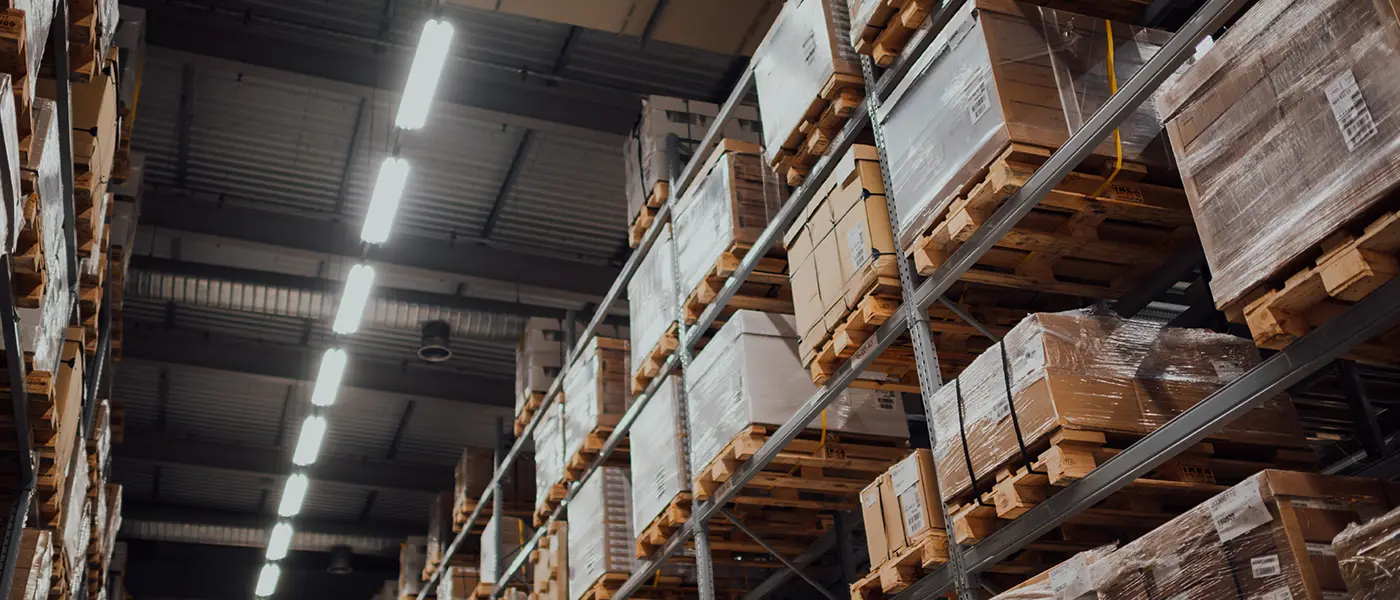The ever-rising global need for the latest technology and the continuing shift to e-commerce and online shopping mean electronics companies and brands must drastically improve their logistics. Thus, it is absolutely necessary for a company or brand to be careful when choosing which company can provide the best logistics for electronic brands.
The COVID-19 pandemic brought about a significant shift in how consumers place their orders, how soon they expect them to arrive, and the condition they’re expected to arrive in. The challenges for logistics for electronic brands can also be quite unique.
As product lifecycles in electronics grow shorter and shorter, order fulfillment gets a bit tricky.
In this article, we looked at the things an e-commerce company needs to know about the logistics for electronics brands, from the challenges you’ll face to choosing a potential 3PL for your tech products and solutions.
Logistics Challenges for Electronics Brands
By now, most consumers in almost all countries have shifted to e-commerce and online shopping as an alternative to the traditional mall. Needless to say that online shopping is a convenient and easy way to shop.
For e-commerce companies, the massive shift to online commerce means logistics for an electronics brand can be very challenging, not just because of the sheer volume of orders online, but other factors as well.
E-commerce companies must take into consideration all the steps of this process, from order fulfillment to warehousing and supply chain. Unfortunately, there are unique challenges that electronics brands need to know and overcome when it comes to logistics services.
Time Pressure
Over the recent years, we’ve witnessed product life cycles getting shorter and shorter. This is especially true for tech products. Technology products can become obsolete, which can be a factor when it comes to logistics services.
Newer devices are released and updated every year. With that said, logistics for electronics brands have to deal with this time pressure while minimizing damages during the main freight up to local couriers.
These logistics systems need to find the most efficient way to do this, such as through the optimization of their various transportation modes and distribution centers.
High Costs
The high global demand for the latest gadgets and devices also poses a challenge financially. If an electronics brand plans to expand its market reach, it needs to prepare for the overhead costs of shipping overseas.
This can quickly become expensive, especially with all the shipping zones, customs regulations, and fuel surcharges. In addition, a business has to be prepared and knowledgeable about taxes and extra fees.
If the business is partnering with a third-party logistics company, the location of their warehouses and order fulfillment centers will matter, as these will directly affect shipping rates.
Storage Risks
With the complexity of tech products nowadays, most will almost always come with sensitive components. Unfortunately, this means that the logistics for electronics brands need to consider the safety of these components during storage and warehousing.
This means either keeping it away from direct sunlight or moisture, depending on the type and requirements of the electrical parts. Unless the products are made to order, storage poses a major challenge.
There are even more risks if you’re thinking of long-term storage. Unlike a majority of consumer products with a nearly timeless shelf life, most electronic devices need a specific environment to avoid damage.
The logistics services provider must be able to provide all of these
Global Supply Chain Complexity
While all global businesses are starting to adapt to the changes brought about by the COVID-19 pandemic, there are still pressing issues related to their supply chains.
Unfortunately, the logistics for electronics brands aren’t exempt from these challenges.
Some supply chain complexities most businesses face today include manufacturing and supply issues, like component shortages. When an issue like this arises, it can delay or even completely stop manufacture—ultimately delaying shipping dates and deadlines as well.
Catering to the Local Market
Before operating on a global level, the logistics of an electronics brand should have the ability to cater to the local market well. These local markets have varying product regulations, demands, and preferences.
A brand or business needs to be aware of all these trends to create an efficient logistics system that can successfully provide service to both local and global markets. It’s usually easier to start with the former and master adapting to these trends, and then expand into global markets as your business grows.
Packaging
This ultimately ties back to the fact that in the tech industry, there are sensitive components that need special requirements to avoid damage. Aside from its importance in finding the right storage and warehouse conditions, it also has a significant effect on product packaging fit for shipping.
While product packaging is an essential part of marketing and creating a brand, another important thing to consider, logistics-wise, is its rigidity, safety, and even stackability. Collaborating with leading product packaging design companies like Zenpack ensures that your electronics are securely packaged, enhancing both protection during transit and customer satisfaction.
Electronics brands have to look for packaging solutions that take all of these challenges into consideration. Often, these packaging solutions involve engineering skill sets that combine safe shipping and great packaging design.
Counterfeiting and Theft
Because the tech industry is essentially dealing with high-value products all the time, the logistics for electronics brands have to overcome the challenges related to counterfeiting and theft.
Unfortunately, both can happen at any point during the whole logistics process.
Avoiding counterfeit electronic items is one of the essential steps in the manufacture of any electronic device. One wrong component can lead to safety hazards, failure to secure certifications, and, ultimately, financial losses.
Further down the production process, there’s also the challenge brought by cargo theft. Since items in the tech industry are often high-value, they’re quite the common targets.
Why an Electronics Brand Should Consider Outsourcing a 3PL Company
While in-house fulfillment and warehousing are great ways to get familiar with the logistics side of it all, it can get really difficult—especially when order volumes are constantly fluctuating.
On top of that, in-house processes aren’t immune to the challenges of logistics for electronics brands. They’re even more likely to experience most, if not all, of those problems.
Partnering with a 3PL company won’t completely eliminate these complications, but it can certainly help minimize them. Most companies are equipped with resources, such as warehouses that can meet the requirements of sensitive electrical components.
In addition, electronics brands can focus more on the core components of their business, like product design, manufacture, and marketing, with the help of these 3PL partners. They’ll essentially take over everything related to logistics, some even as far as coming up with plans and strategies that work specifically for your brand.
Factors to Consider When Choosing Logistics Services for an Electronics Brand
Once a company is set out to partner with a 3PL company, the next step is to choose the right one that’ll fit their brand. This is a vital part of any e-commerce business as it can dictate the success or failure of the brand.
Aside from knowing all of the challenges we listed earlier, what should electronics brands look out for in a logistics service?
Flexibility
Just like most consumer markets, demand is volatile in the electronics industry. Fluctuations in consumer demand are a likely occurrence.
An electronics brand should look for a logistics partner that’s flexible enough to match and adapt to the constant changes in the market and consumer demands.
Flexible logistics means that it has the capacity to adapt and react as quickly as possible. It’s open to adjusting systems and processes to address any changes in factors like order volume, routes, and even shipping deadlines.
Flexibility also entails the utilization of the emerging technologies and software available to help manage the supply chain well. Given the growing number of complexities in the supply chain, integrating newer technology can aid in providing viable solutions for these challenges.
Globalized Partnerships
Presence and visibility in the global marketplace are essential to any brand’s success. This is one of the driving reasons why logistics for electronics brands is important—it helps provide globalized partnerships.
These partnerships help widen your brand’s reach. Working with a well-known and well-established 3PL company helps you connect with other global partners by linking you to its network of contacts, like trusted suppliers and manufacturers in the industry.
Aside from helping your brand expand market reach, a 3PL company should also have reliable operations within many local markets. This will ultimately help with reducing the costs of shipping—especially if your 3PL has a wide distribution of warehouses and order fulfillment centers all over the country.
Efficient Transportation Systems
The efficiency of a 3PL company’s transportation systems heavily affects how good your brand will be when meeting shipping deadlines. In a world where most orders are expected to arrive on time—or even earlier—an electronics brand should be able to keep up.
Pair this demand with the short life cycles of most tech products, and you’re faced with the massive challenge of optimizing your transportation modes to deliver quality, damage-free products safely and on time.
This begs the need for a 3PL partner with a well-built transport system because it allows faster transactions. The ability to utilize other means of transportation during unexpected weather conditions, like flooding, minimizes and even eliminates delays.
Ultimately, this also buys your brand customer satisfaction and loyalty.
Service Parts Logistics and Product Returns Processing
Often, logistics for electronics brands don’t just include order fulfillment and warehousing but other added services like service parts logistics and product returns processing. These are two services that can pose a real challenge for in-house logistics.
The former is involved in the management of spare components related to the repair and/or maintenance of electronic devices under your brand. It’s an important part of supply chain management but can be tricky to handle on your own.
Product returns processing is similarly tricky because it entails creating a clear but not outrageously strict returns policy. However, if this service is handed over to a 3PL partner, all you have to worry about is employing your policy and approving returns and refunds.
Your 3PL partner handles the return itself, sometimes even going as far as providing a portal for customers to use to file for returns. This offers a smooth returns process, which has been proven to drastically improve customer retention and loyalty.
Real-time Product Tracking
Since logistics for electronics brands are usually dealing with high-value products, look for a 3PL partner that allows real-time product tracking. This assures not only the buyers but your business itself where your products are.
If they’re stuck at a sortation center or at any point within the route, a tracking system allows you to pinpoint where exactly the delays are and what’s causing them. This also gives you the ability to track orders from suppliers or manufacturers to create a feasible shipping deadline.
With today’s advanced technologies, logistics companies can utilize GPS and other tracking software to aid in minimizing cargo theft. This type of service offers more visibility and strict monitoring so you can stay on top of any suspicious activity happening at any point of the product’s route.
Innovative and Scalable Technology
In relation to real-time product tracking, a good 3PL partner should also have the capability to seamlessly integrate new technology into their systems and processes.
They should know how to utilize technology to make the entire logistics process smoother, from easy tasks like creating a cloud-based warehouse management system to the more complex tasks of creating unique software for customization purposes.
It’s important to partner with logistics companies that aren’t afraid to use technology to help with automating processes. In addition, you want these technologies and software to be compatible with the ones you already employ in your business.
Even with extensive use of scalable technology, a good 3PL company should still be able to safeguard any information their client provides in their cloud-based systems. You want important data about your electronics brand secure.
Conclusion
Even before the COVID-19 pandemic, the logistics for electronics brands already poses several challenges, from supply chain complexities to problems with counterfeit electrical components.
Fortunately, brands, businesses, and logistics companies have begun to adapt to this new normal and create optimized processes and systems that create solutions to many of the most common logistics problems.
One of the primary reasons why an electronics brand would opt to outsource a third-party logistics partner is to make all of these solutions easier to achieve.
At that point, all that’s left to do is to look for a 3PL company that’ll fit the brand. Knowing what you have to look for in a logistics partner, such as flexibility and efficiency in transport, is key to finding the one you can work with as your company grows.





